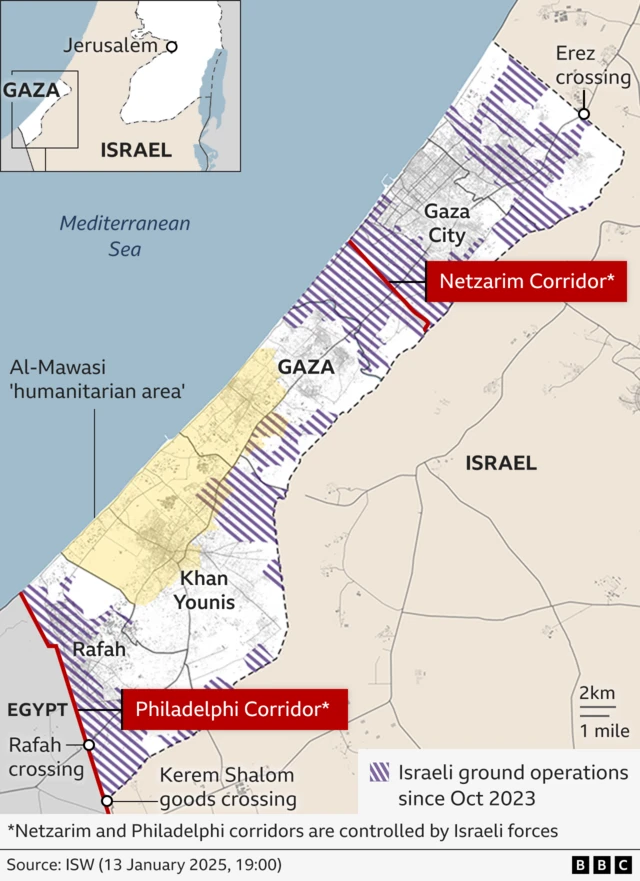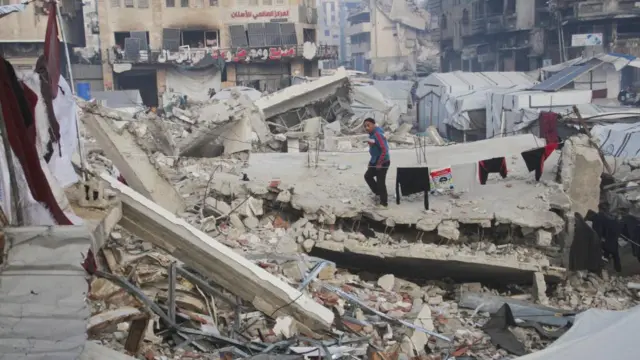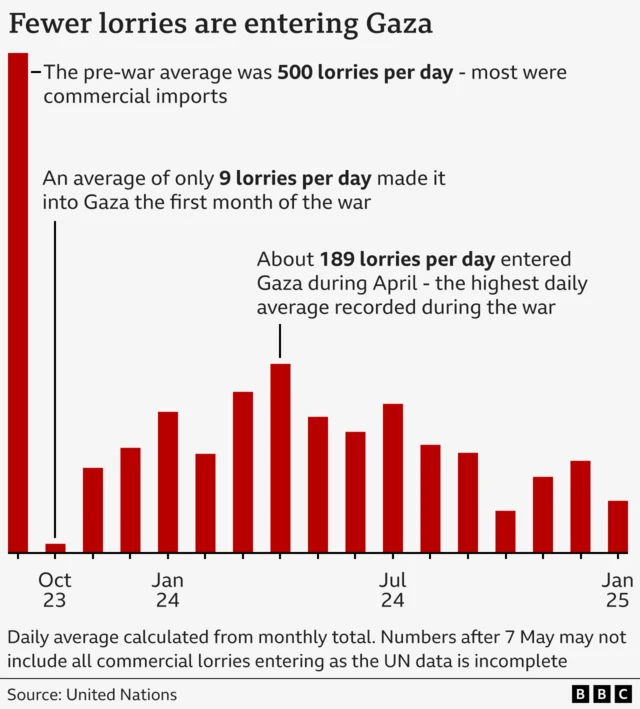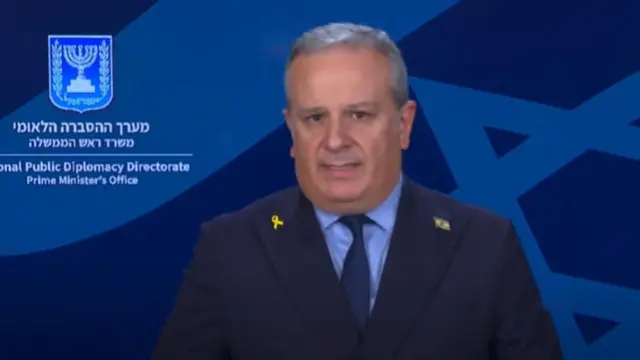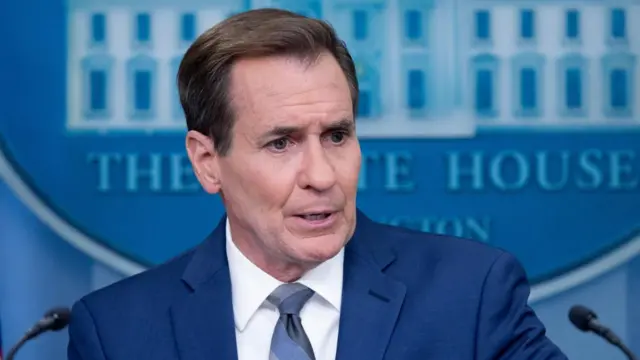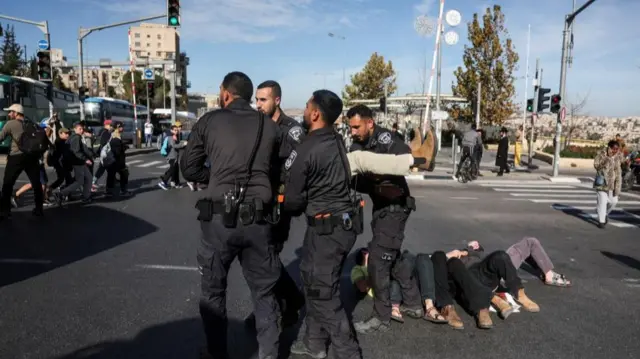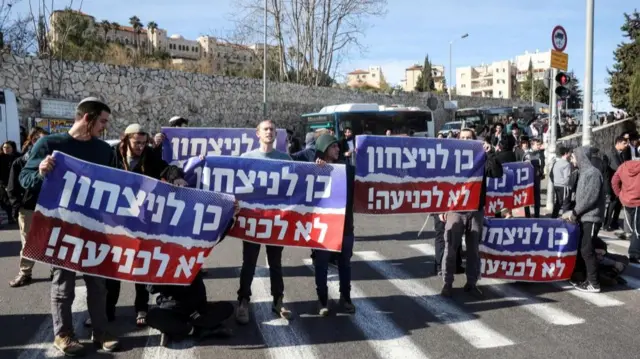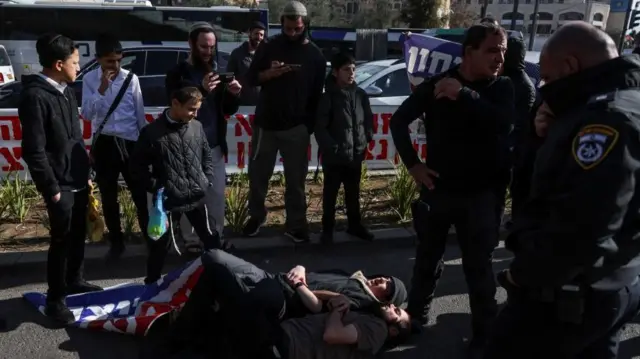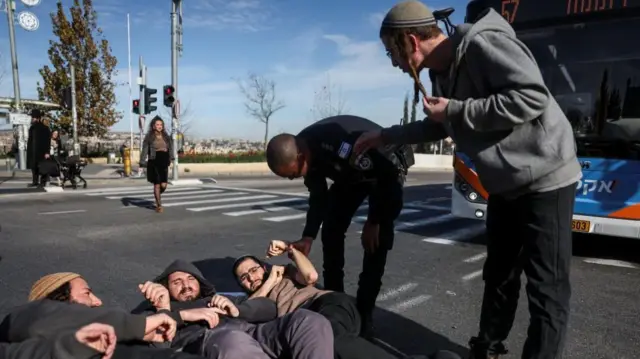Israel's military says it killed man involved in music festival attackpublished at 16:02 GMT 16 January
The Israeli military says it has killed a man involved in the Hamas attack on the Nova music festival on 7 October 2023.
Strikes were carried out on 50 targets over the past day, the Israeli Defense Forces (IDF) and the Israeli Security Agency adds in a joint statement.
Hundreds of people were killed at the festival on 7 October, when Hamas gunmen crossed the border from Gaza.
Officials in Gaza say at least 80 people, including 19 children, have been killed by Israeli strikes since the agreement was announced last night.
